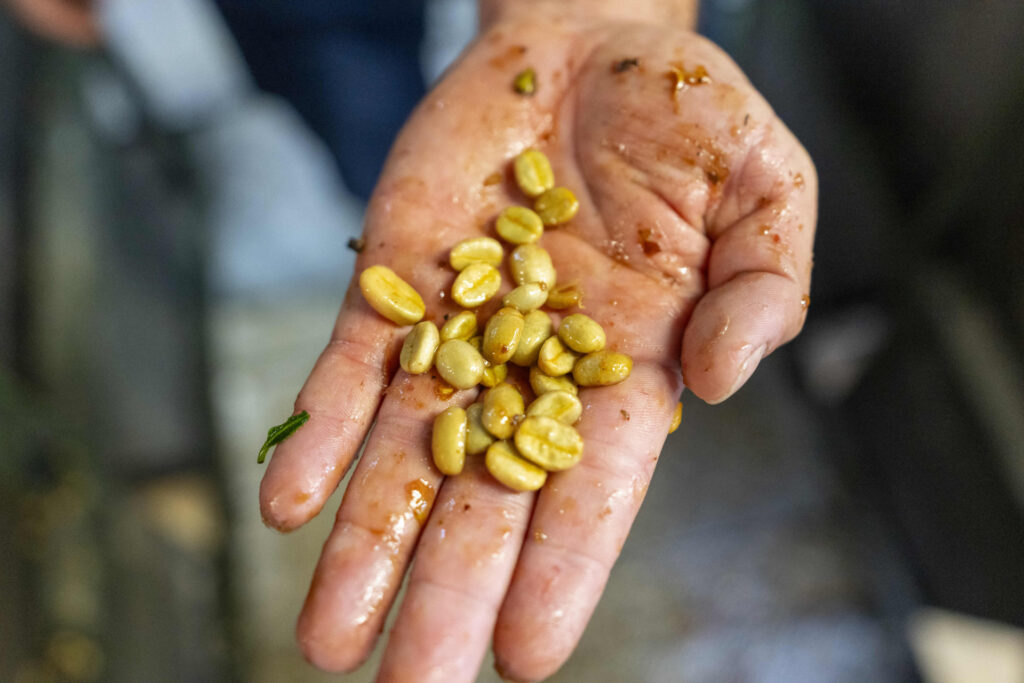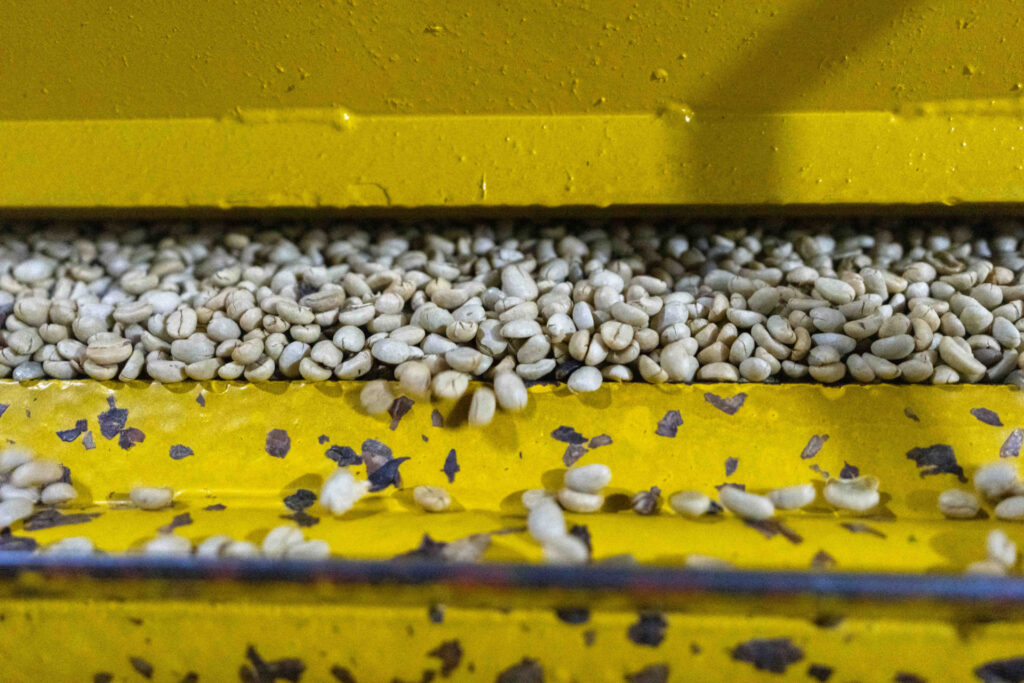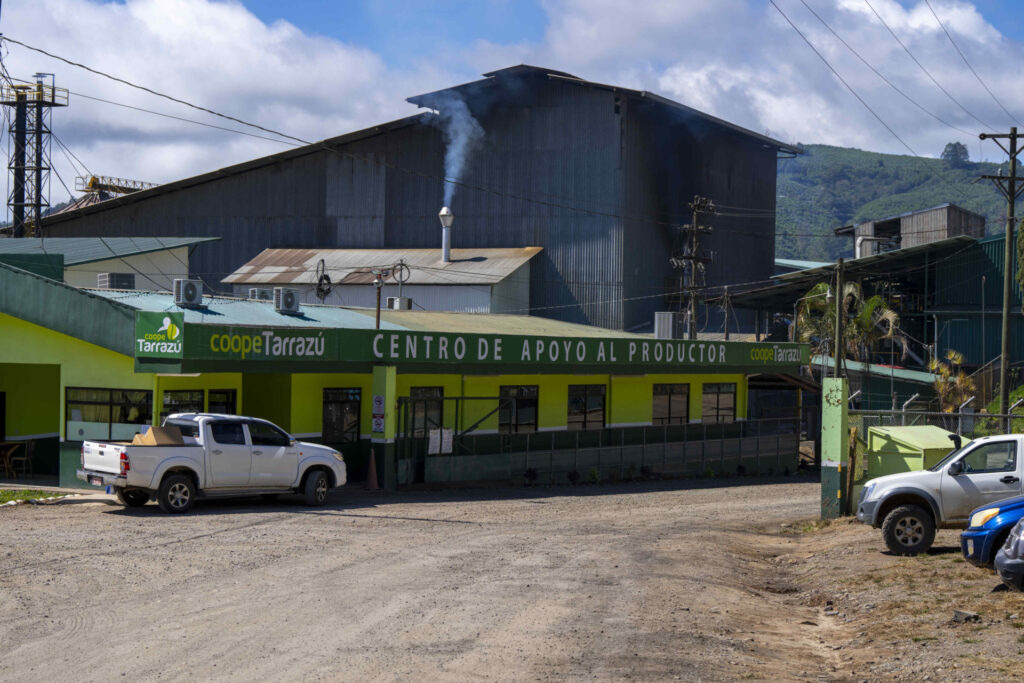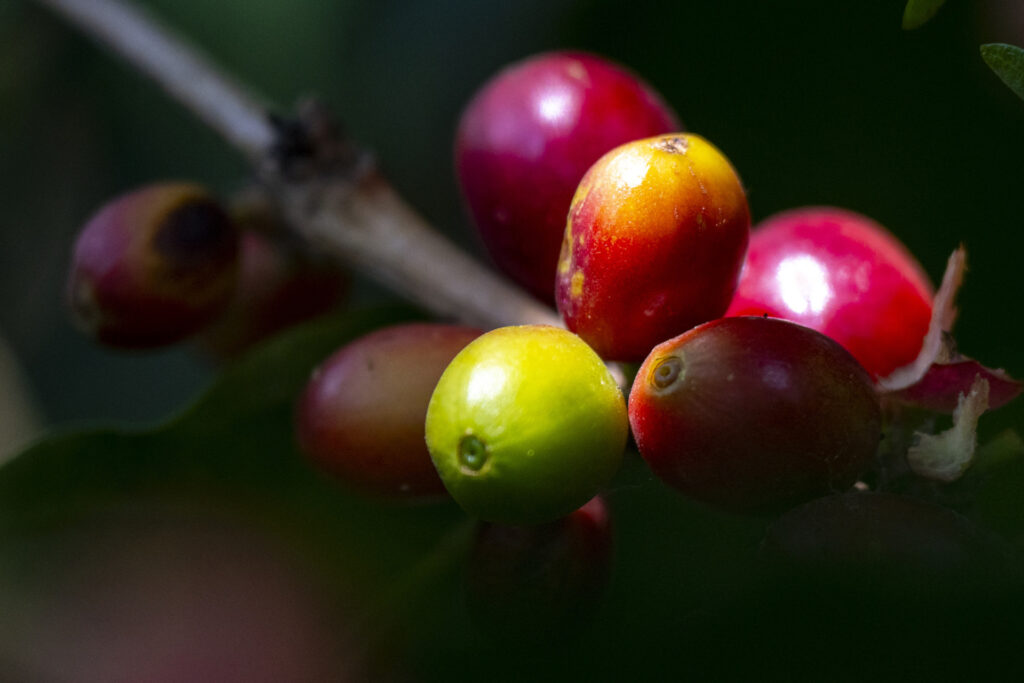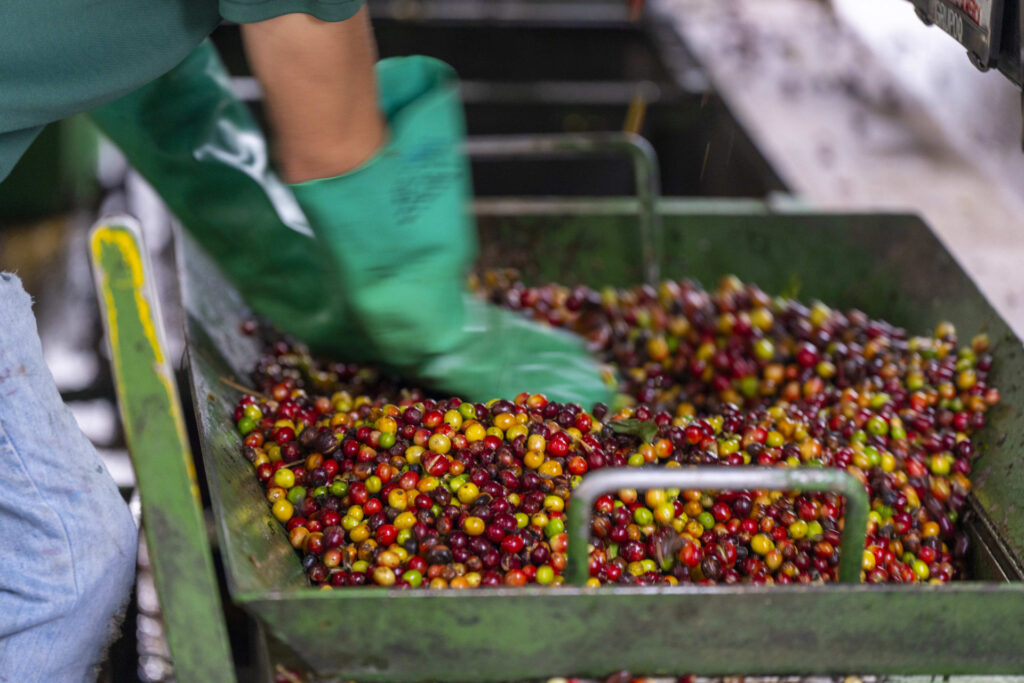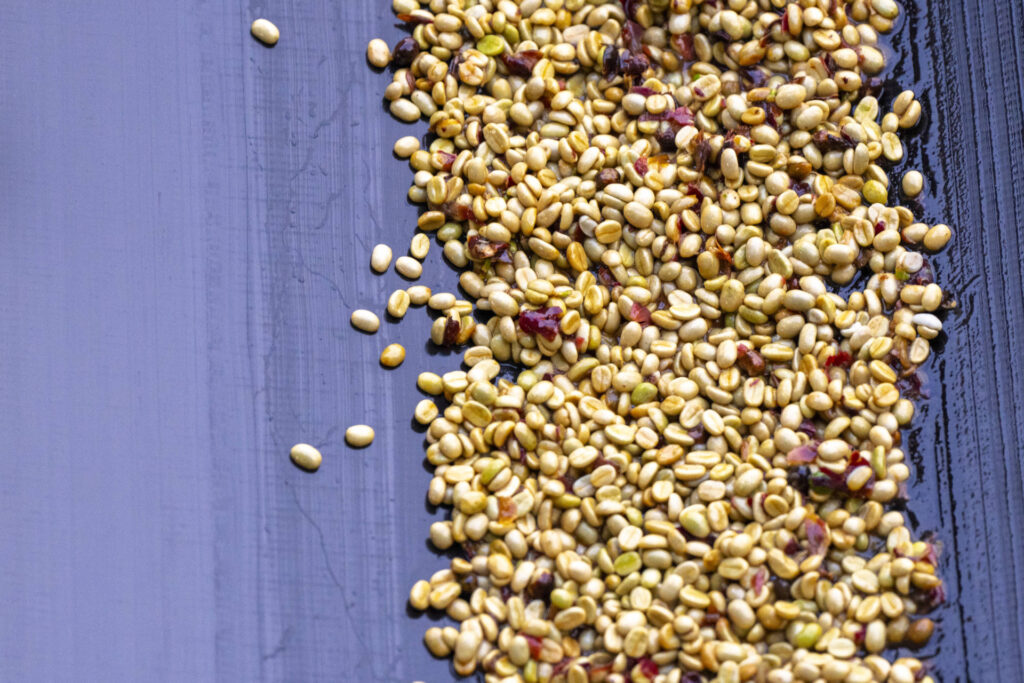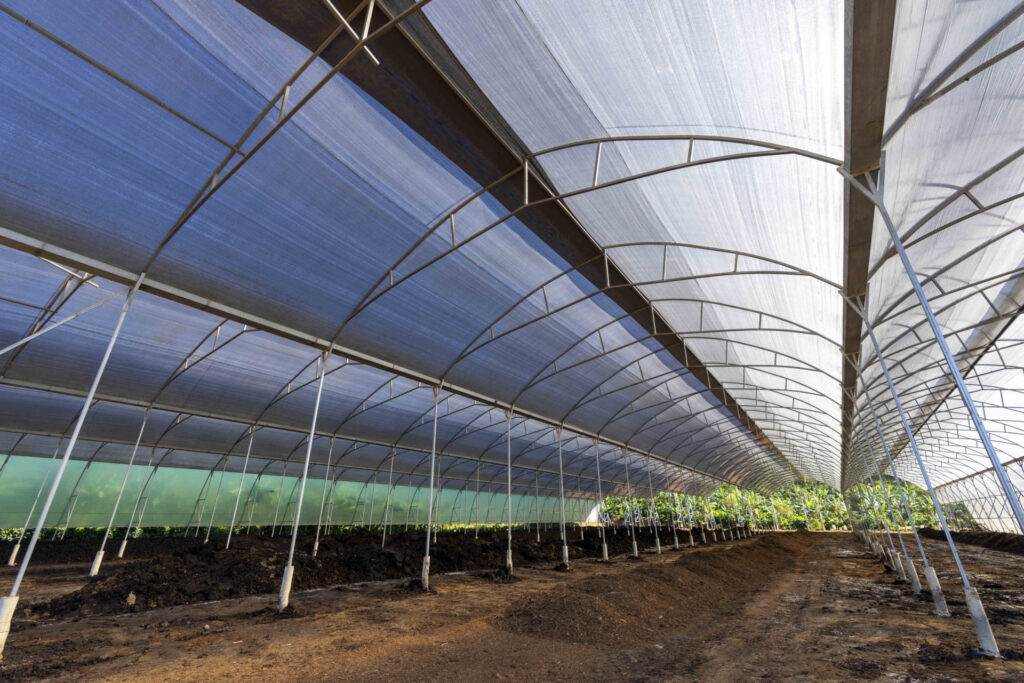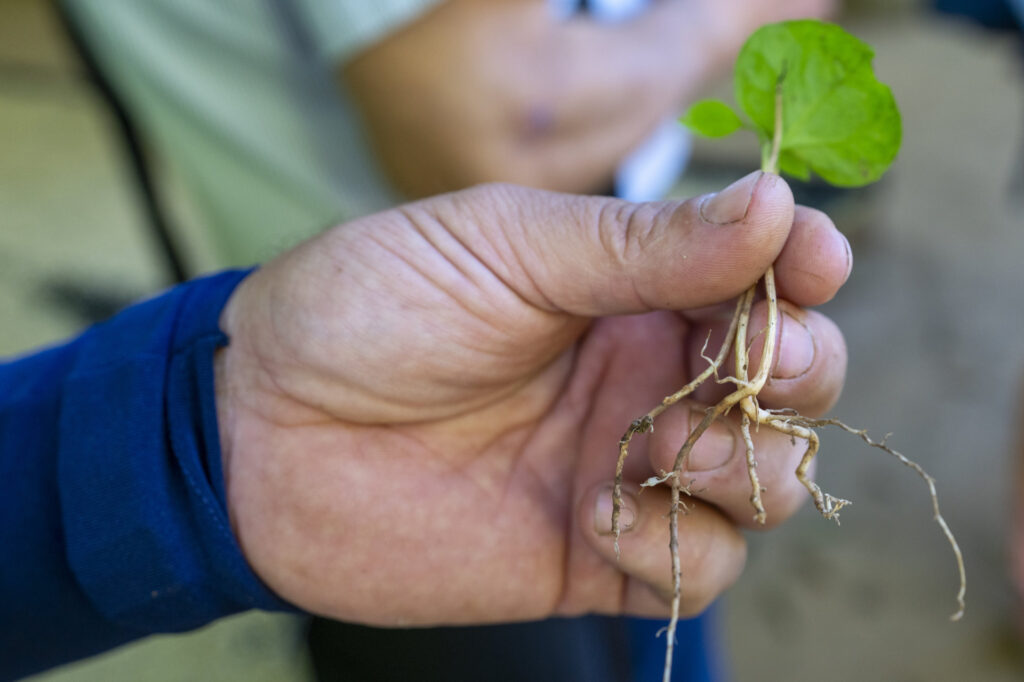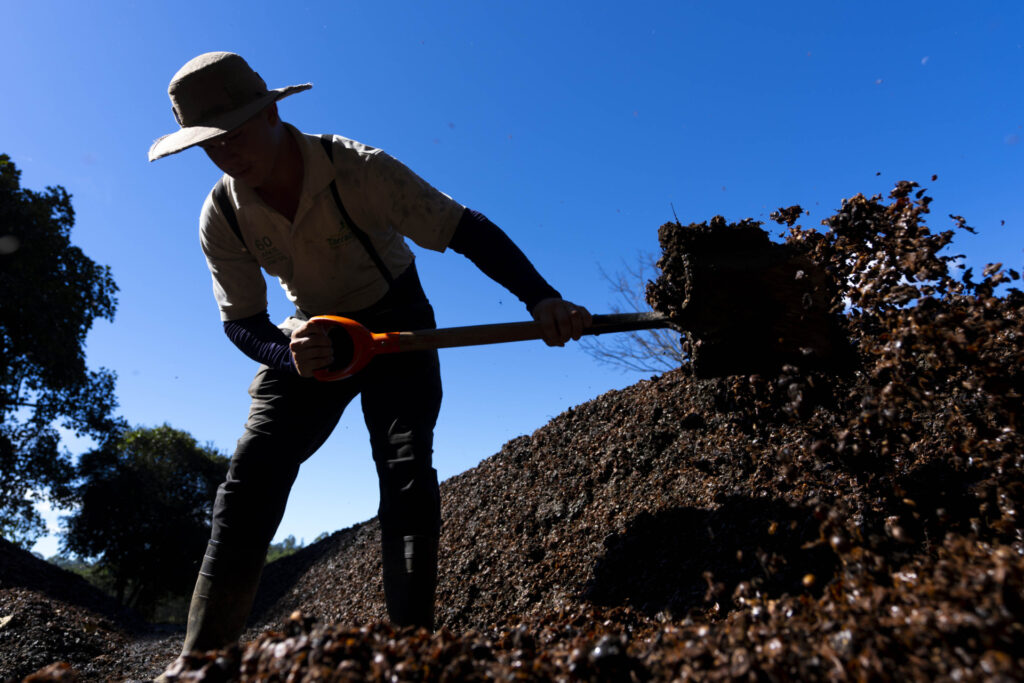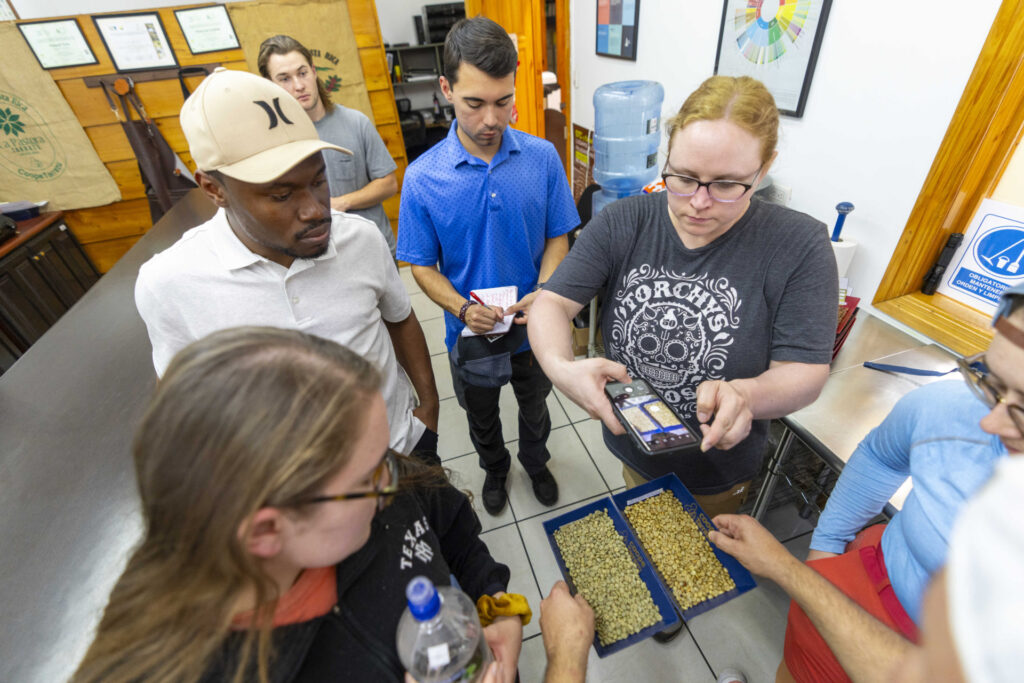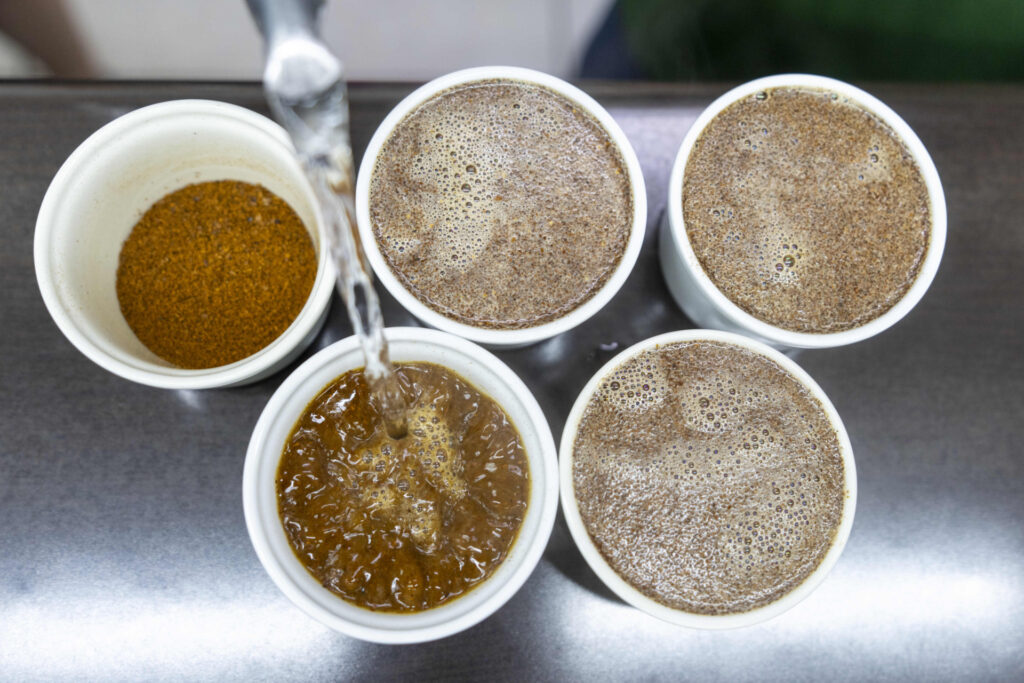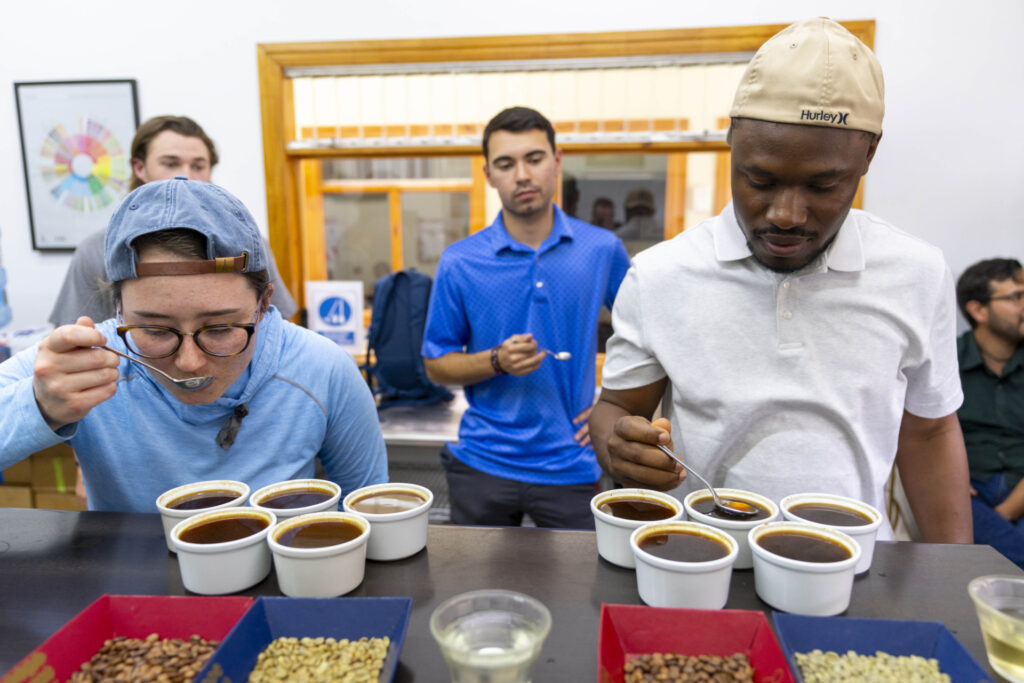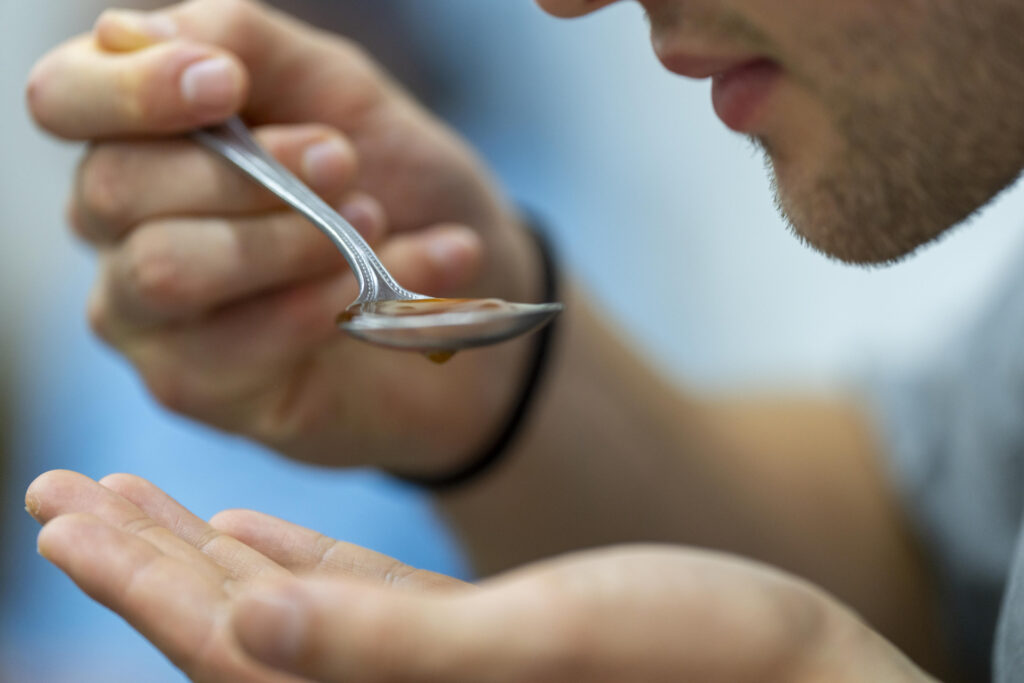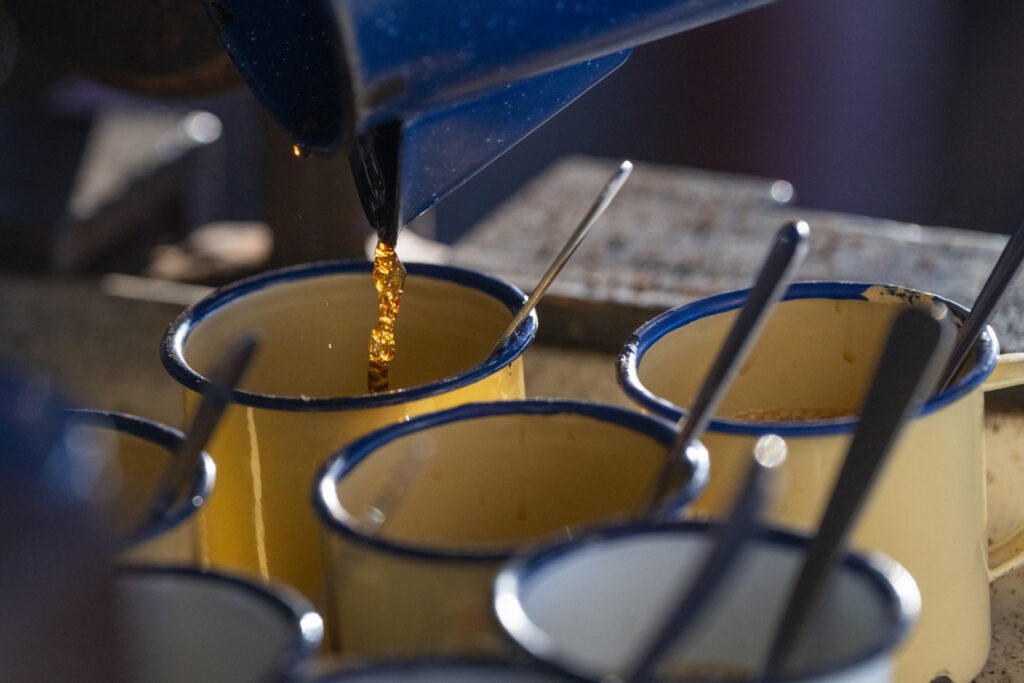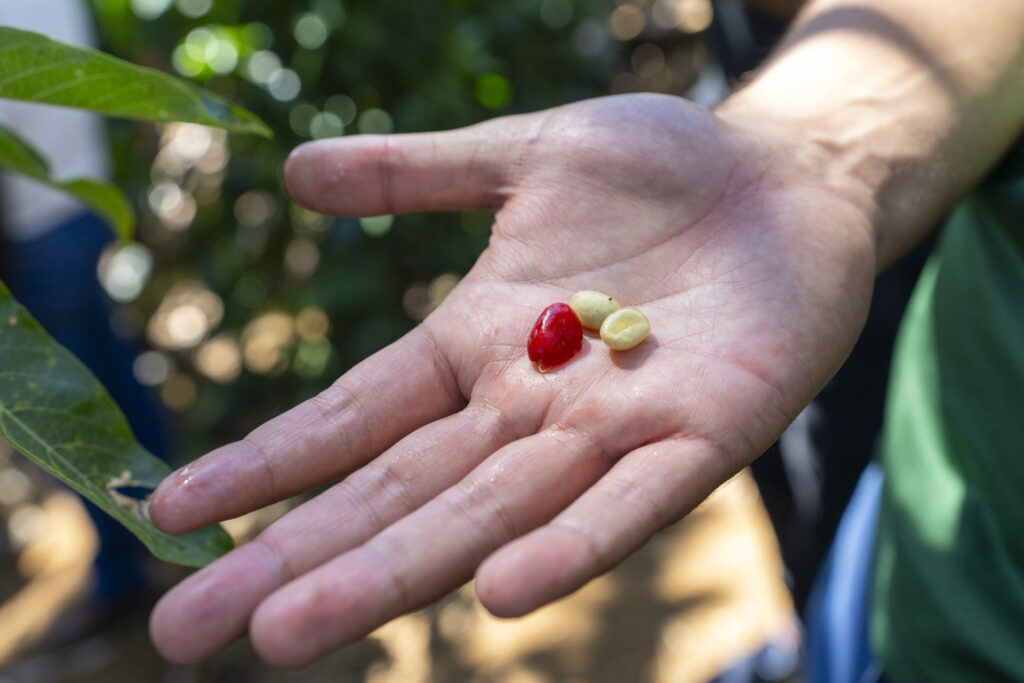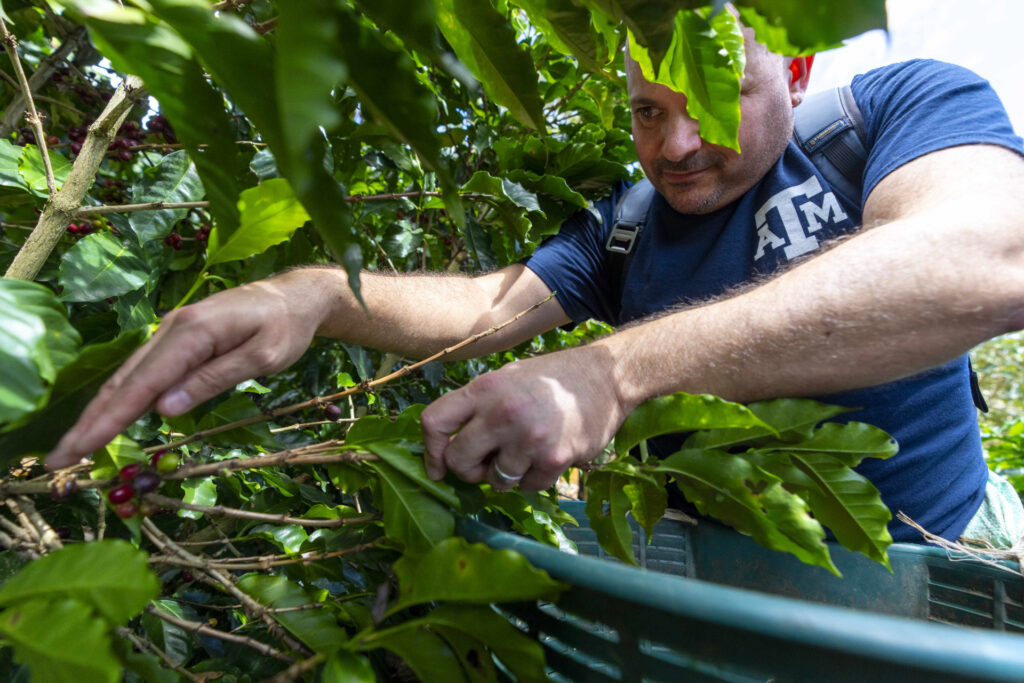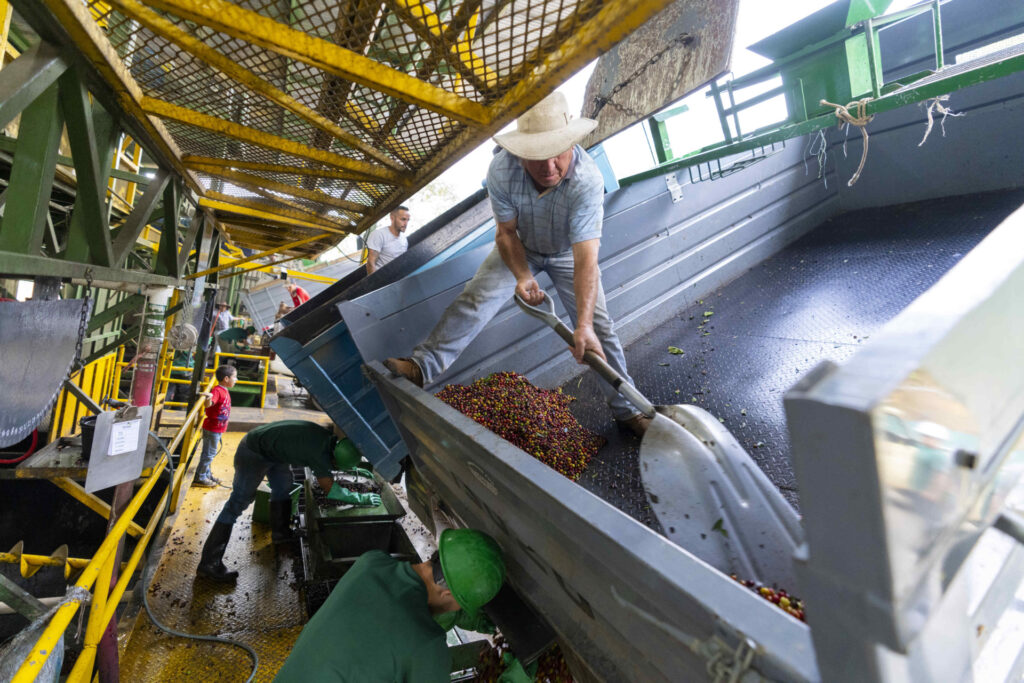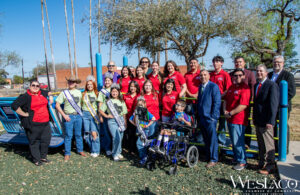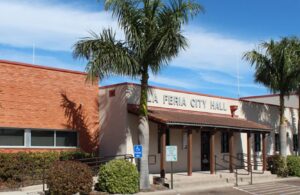- La Feria Community Holds Succesful Business Mixer Event
- Little Nashville to Take Place in Downtown Mercedes
- Lions Basketball Captures District Gold
- La Feria ISD Students Compete in Regional Chess Tournament
- Lions End First Half of 32-4A on a High Note
- La Feria ISD Held Another Successful Parent Conference
- Strong Appearance for Lions at Hidalgo Power Meet
- LFECHS Students Get to Meet Local Actress
- Students Participate in Marine Biology Camp
- Two LFECHS Students Qualify for All-State Band
From Coffee Bean To Coffee Cup
- Updated: April 19, 2024
Study abroad Aggies let newfound knowledge percolate in Costa Rica
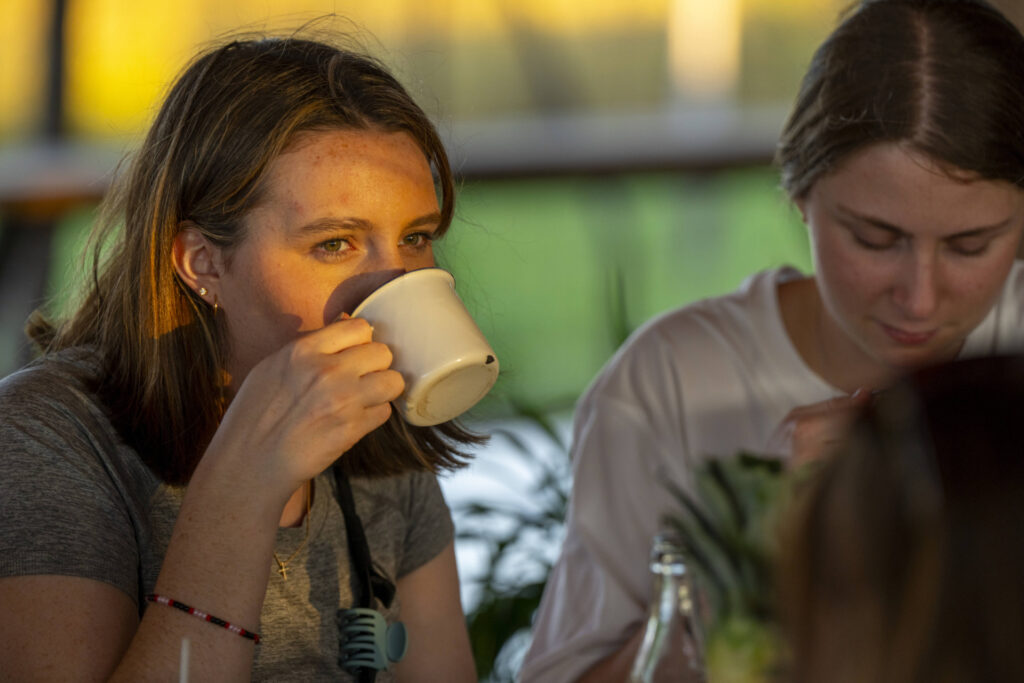
Kias Simmons ’26 looked out from the middle of a Costa Rican supermarket over half a dozen bags of coffee beans stacked high in his arms. The aisle in front of him was clear. All that remained was the high-wire act to get to the checkout line.
“For my family and friends,” he said. “I promised I would bring some back.”
Simmons was part of the Texas A&M Costa Rica Specialty Coffee Value Chain field trip that offered students a faculty-led, firsthand look at the process of coffee development from bean to cup in Central America.
“I really didn’t know much about coffee before the trip,” said Simmons, a double major in the Texas A&M College of Agriculture and Life Sciences Department of Animal Science and Department of Agricultural Economics.
Simmons, who is working toward a Meat Science certification, was looking forward to the learning experience.
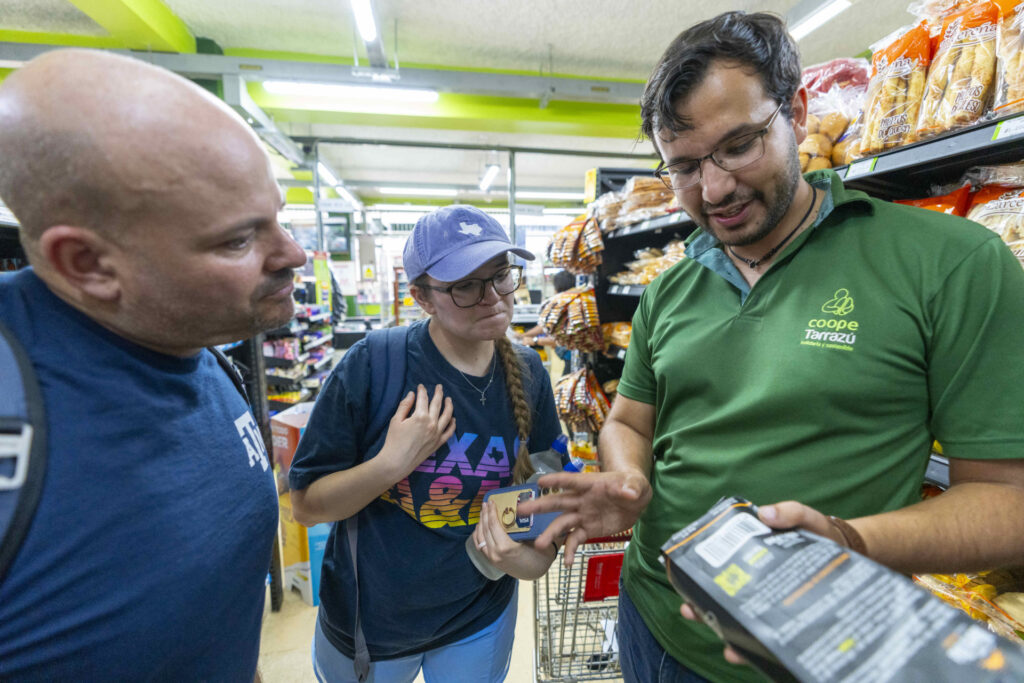
Coffee professional’s dream trip
Nadav Mer, a lecturer in the Department of Agricultural Economics and trip leader, was in his element.
“It’s really my dream coffee trip as a coffee professional in Costa Rica – bringing students along to a very high-level experience within the coffee industry that generally is only sought out by coffee professionals,” Mer said.
Mer said he owned several roasteries and a coffee shop in Ames, Iowa, over the course of 10 years.
“Coffee brings people together in a way that other commodities or other product categories do not,” he said. “It’s unique in that way.”
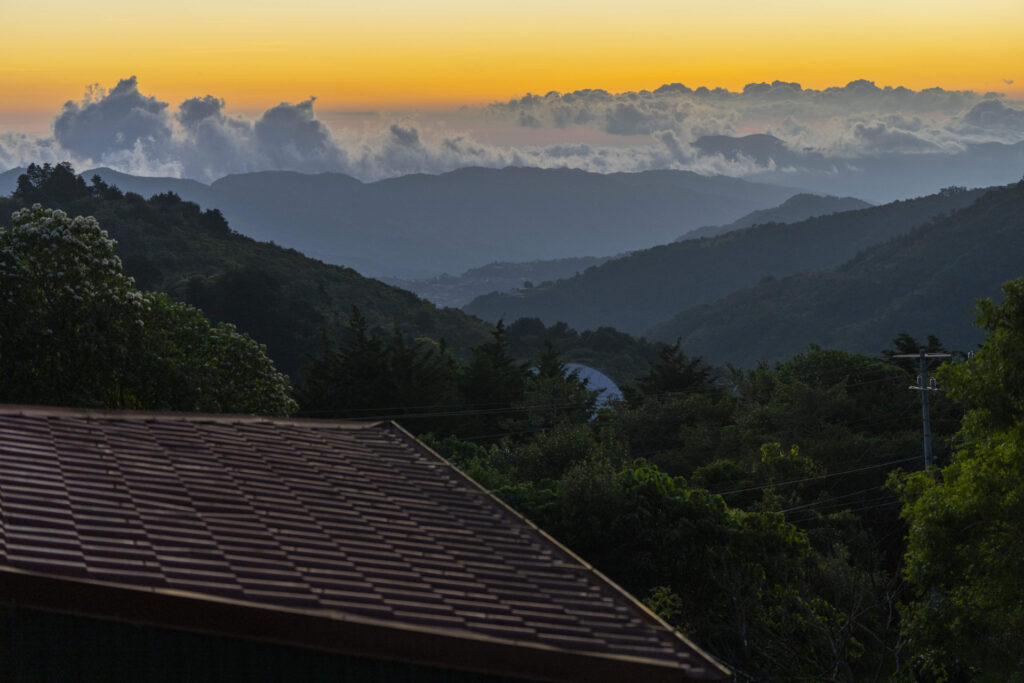
Students get rare insider view
The shared experience created something special for a small group of Aggies.
Six students from the College joined Mer on the trip through forests, mountains, active volcanoes and switchbacks. Lots of switchbacks.
The students’ experiences ran the gamut, from picking ripe, cherry red coffee fruit from the tree to plodding across a patio with a rake to dry beans, topped off with a private tasting session of locally grown products. Coopetarrazú, a coffee cooperative in Costa Rica, helped provide some of these fundamental experiences during the trip.
“I have kind of a visualization of what the process is now from plant to cherry to beans all in one cup,” Ayla Boyd ’24 said. “I have a face for the people who are involved in the process.”
Boyd is a senior graduating with a degree from the Department of Food Science and Technology and certificates in Viticulture and Enology and Food Diversity.
A tour of the football-field-sized outdoor composting center was included. Discarded coffee cherries, the fruit left over when the beans are removed, are composted to create fertilizer for the next generation of coffee plants.
“I think the composting process they have is very interesting,” Boyd said. “Coopetarrazú was really, really neat to see. Also, getting an understanding of the scale that they have and the methods that they use was special.”
“Coffee brings people together in a way that other commodities or other product categories do not. It’s unique in that way.” Nadav Mer Lecturer and trip leader Department of Agricultural Economics
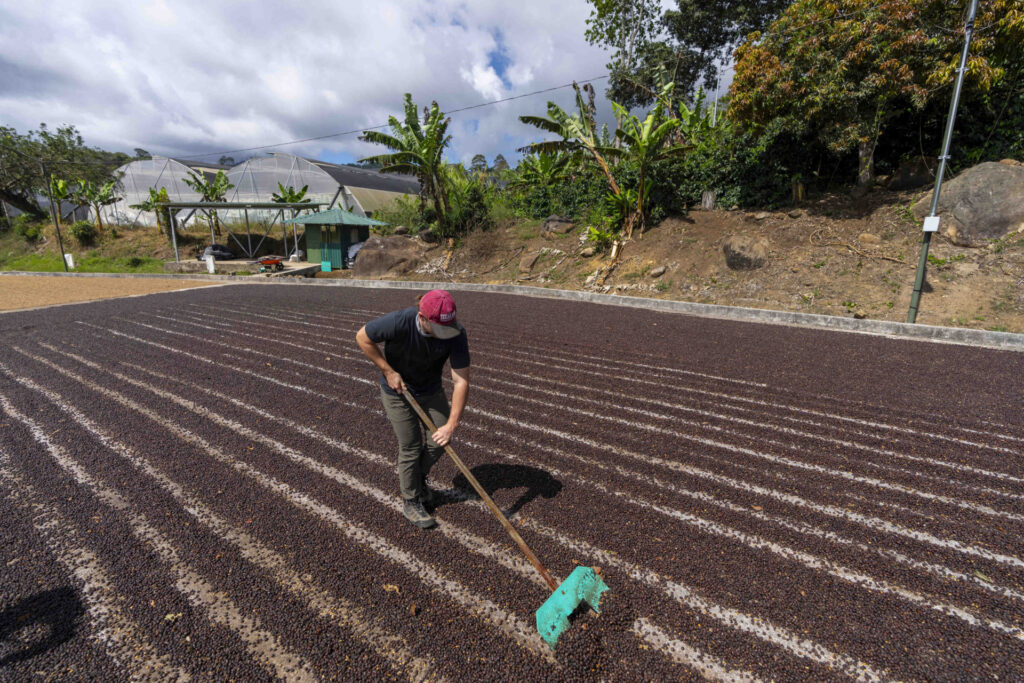
An educational perspective not found in the classroom
Mer is passionate about providing these new perspectives.
“To be able to visualize the journey from picking up a cup of coffee to understanding the steps involved in bringing it to you is a rare treat for anyone passionate about coffee,” he said.
Eric Brenner, assistant director for the Texas A&M Center for Coffee Research and Education and trip co-leader, values the depth of education this study abroad experience provides.
“It gives the students a sense of understanding,” he said. “They learn everything that goes on behind the scenes – the science, the mechanisms, all the way to the consumer.”
Simmons, for one, left the co-op with a greater respect for the coffee bean.
“It’s one of those things where if you grow your own food, it tastes better,” he said. “Now that I get to reflect back on this whole process, I think coffee is going to taste a lot better to me.”
